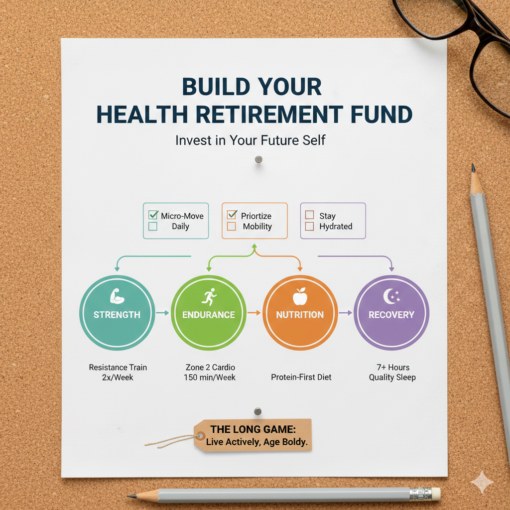By Zack Zeigler – From the Team Beachbody Newsletter
As the weather gets colder, it forces us to do things like wear clothing that covers our midriffs and spend more time trapped indoors with people who have runny noses and hacking coughs. To stay out of the infirmary, we need to keep our immune systems running at optimal levels. That means never going outside with wet hair and starving a fever, right? Not exactly.

Colds are caused by viruses, not inclement weather conditions. So to stave off the sniffles so you can continue to train hard through the long winter months, you’ll need to do a few key things.
1. Eat More Fiber
According to the Journal of the American Medical Association, fiber intake should be between 20 and 35 grams per day. “Your immune system needs key ingredients to function properly,” says Dr. Steven Masley, author of The 30-Day Heart Tune-Up. “Fiber is the most potent-packed nutrient in the human diet. Eating more fruits, veggies, beans, and nuts, as well as giving yourself a healthy oil change, using olive oil, nuts, and seafood instead of inflammatory grain oils, can help.”
Lack of fiber in your diet can cause irregularity, constipation, and lethargy not exactly the best kind of ménage a trois. Boost fiber by eating whole foods instead of processed and deep-fried foods that contain trans and oxidized fats. “Trans fat is like embalming fluid; the stuff is toxic,” Dr. Masley explains. Sadly, that means passing on the chicken wings and beer-battered pigskin hooves over Super Bowl weekend.
2. Manage Your Stress
 Emotional strains are unavoidable, and can serve a purpose if you’re able to control them. “Stress gives us purpose and challenge,” Dr. Masley says. “But if you don’t manage stress, your cortisol goes up; and with prolonged stress you will get sick more often.”
Emotional strains are unavoidable, and can serve a purpose if you’re able to control them. “Stress gives us purpose and challenge,” Dr. Masley says. “But if you don’t manage stress, your cortisol goes up; and with prolonged stress you will get sick more often.”
Stress fires up your sympathetic or “fight or flight” nervous system while suppressing your parasympathetic or “rest and digest” nervous system, which plays a big role in healing and immunity. In other words, when you’re stressed, your body doesn’t make fighting illness a priority.
Other negatives of uncontrolled stress include stomach pains, headaches, and trouble sleeping. So instead of Hulking up at your dilemmas, misfortunes, and outstanding TPS reports, explore healthier ways to calm down. Take deep breaths in through your nose and exhale out through your mouth, read for pleasure, or take a walk. Basically, if it’s healthy and provides a reprieve from what’s stressing you out, find a way to build it into your daily routine.
3. Consume Lean, Not Mean Protein
Foods high in protein help keep skin, hair, and nails healthy; they’re also essential for packing on lean muscle. But all proteins aren’t created equal when it comes to boosting immune function. “Eating ‘mean’ protein doesn’t just mean consuming saturated fat like cheeses or fatty meats, but also proteins that are laced with chemicals, hormones, and pesticides,” Dr. Masley reveals. Stick to proteins like organic and/or grass-fed meats, tofu, and legumes. These tend to be filled with more antioxidants such as vitamins E and C, as well as omega-3 fatty acids, all of which boost immunity. Then, as Dr. Masley suggests, “Add healthy fats to the mix and you’re not just helping protect your heart, you’re helping your immune system work better.” Those include extra-virgin olive oil, coconut oil, avocados, nuts, and seeds.
4. Sleep Better
 Whether you’re pulling an all-nighter at work or you’re pulling an all-nighter with an attractive coworker, depriving yourself of sleep means you’re cutting back on your body’s ability to repair itself. This includes undermining the way your immune system fights viruses. “Our bodies do a lot of healing at night we produce testosterone and growth hormone so when we deprive ourselves of sleep, we’re shortening that repair cycle,” Dr. Masley says.
Whether you’re pulling an all-nighter at work or you’re pulling an all-nighter with an attractive coworker, depriving yourself of sleep means you’re cutting back on your body’s ability to repair itself. This includes undermining the way your immune system fights viruses. “Our bodies do a lot of healing at night we produce testosterone and growth hormone so when we deprive ourselves of sleep, we’re shortening that repair cycle,” Dr. Masley says.
5. Monitor Your Exercise Intensity
Undertraining can lead to you owning an unsightly spare tire around your waist. But overtraining can lead to you owning decreased immune system efficiency. Essentially, you need to find that healthy medium. Some studies suggest that participating in more than 90 minutes of endurance exercise leaves an athlete more susceptible to illness for up to 72 hours after completing his or her last rep.
“Think of a U-shaped curve with immunity and exercise: No exercise and you’re sick all of the time. As you get more moderate, you drop to minimal and almost never get sick. Overdo it and push yourself every day and you’re fried and get sick all of the time,” he says.



